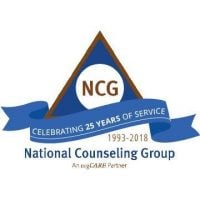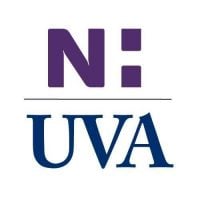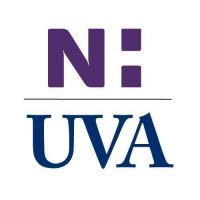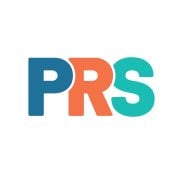Discovery Mood Anxiety Program
Drug Rehab Center in Fairfax Station, Virginia
- Opioid Addiction
- Mental Health
- Dual Diagnosis
- Drug Addiction
- Alcoholism
Discovery Mood Anxiety Program is a CARF and JCAHO licensed addiction treatment center in Fairfax Station, VA, offering various levels of care with evidence-based therapies, individualized treatment plans, and support to guide individuals to sobriety.
About Discovery Mood Anxiety Program in Virginia
Discovery Mood Anxiety Program in Fairfax Station, VA is a comprehensive treatment facility that specializes in providing care for individuals suffering from mental health issues, opioid addiction, drug addiction, alcoholism, and dual diagnosis conditions. This facility offers a range of treatment levels, including outpatient, partial-hospitalization, and inpatient care, to cater to the unique needs of each individual. Discovery Mood Anxiety Program is accredited by both CARF (Commission on Accreditation of Rehabilitation Facilities) and JCAHO (Joint Commission on Accreditation of Healthcare Organizations), emphasizing their commitment to providing high-quality and evidence-based care to their patients.
With a focus on addiction and substance abuse, Discovery Mood Anxiety Program offers a range of services designed to support individuals on their journey to recovery. They provide personalized treatment plans that address the specific needs and challenges associated with addiction and substance abuse. Through therapy sessions, group counseling, and specialized programs, they aim to help individuals develop coping strategies, build resilience, and achieve lasting recovery. The facility also places a strong emphasis on dual diagnosis, recognizing the importance of addressing both mental health and addiction issues simultaneously to promote holistic healing.
Genders
Ages
Modality
Additional
Accreditations

JCAHO

CARF
The Commission on Accreditation of Rehabilitation Facilities (CARF) is a non-profit organization that specifically accredits rehab organizations. Founded in 1966, CARF's, mission is to help service providers like rehab facilities maintain high standards of care.
Conditions and Issues Treated
Opioid addiction has become a significant health problem in the United States. When a person’s life becomes unmanageable because of an opioid addiction, treatment can help them get sober. Treatment includes medical care and counseling.
“With so many people struggling with opioid addiction, we need more care and attention for those who want to quit. Opioid addicts often take opioids when they experience a painful injury – that’s how the cycle starts! When someone begins taking their medication differently than prescribed or takes an excessive amount of drugs, it means they’re hooked on drugs and in danger of overdosing.
The most successful way to beat this is through detoxing from these types treatments at Discovery Mood Anxiety Program in . Most facilities start by using medical support during the process while providing counseling services; rehabilitation comes later on after treatment has been completed successfully.
Levels of Care Offered
This center offers a variety of custom treatment tailored to individual recovery. Currently available are Inpatient, Outpatient, Partial-Hospitalization, with additional therapies available as listed below.
Going to an inpatient rehab facility means living there while all aspects of addiction or co-occurring disorder get addressed. The treatment involves medical supervision, therapy, and future planning.
This type of rehabilitation provides a drug-free environment for people who struggle with chronic/long-term addiction without having access to drugs outside the center (or their own home). It takes away any distractions because they live there 24 hours per day. If someone is trying to break out old habits, which could lead them back into substance abuse, things like jobs or school can be put on hold until after they complete their stay to focus solely on recovery.
Outpatient programs at Discovery Mood Anxiety Program, the Fairfax Station resident can live with their family while continuing with their job or studies. Treatment includes educating the patient on drug abuse, medications, and counseling sessions at the individual or group level. Outpatient treatment plans cover diagnosis, detoxification, management, and counseling. They are a popular option for those who have graduated from inpatient facilities.
Partial Hospitalization Program is often the second level of treatment for those who have graduated from inpatient facilities. It is a good choice for someone who does not need to go through a medically supervised detox and has a supportive home environment. It requires motivation and dedication to commit to the program without constant monitoring. This can be an ideal choice for someone on a limited budget, a lower level of addiction, home and work commitments that cannot be modified, and high motivation.
Therapies & Programs
Individual therapy is a form of counseling where you meet with a trained professional one-on-one. Meeting with a therapist in this setting allows for a personal and trusting relationship to be built. This allows the patient to open up about sensitive or private issues they may not feel comfortable discussing in a group. Individual therapy helps identify the root causes of your addiction, which can help prevent relapse.
Family therapy is often done alongside drug treatment to help addicts stay sober. The goal of family therapy for drug addiction is to create an environment where communication can happen without judgment, hostility, or blame. The therapist will sit with the family so they can learn how to communicate differently and provide new tools for dealing with emotions so that people don’t want to drink or do drugs. It’s important for families to focus on relapse prevention plans during treatment so that if the addict feels like they want to use again, they’ll know what steps they need to take together to prevent it from happening again in the future.
Group therapy sessions are another common addiction recovery service. These group sessions typically involve six to 12 addicts who meet regularly with a trained professional for support and guidance.
During these sessions, the group shares their experiences with one another and provides feedback that can help each member avoid relapse or overcome specific obstacles they are facing in their recovery process. With this type of support and guidance, addicts can feel like they are part of a community that understands their struggles and will help them get through the hard times.
Dialectical Behavior Therapy was developed in the 1980s to treat chronically suicidal individuals. It is a cognitive-behavioral therapy that combines standard DBT with strategies derived from Zen Buddhism, such as mindfulness training.
DBT has been adapted for use with other types of psychiatric problems, including eating disorders, substance abuse disorders, borderline personality disorder, posttraumatic stress disorder (PTSD), and other personality disorders. Dialectical Behavior Therapy is considered a psychosocial treatment of BPD. This means that while it can be used alone or in conjunction with drug treatments, DBT does not rely on medications to treat the disorder. Instead, DBT aims to help patients change their thinking and behavior.
Cognitive Behavioral Therapy (CBT) focuses on the underlying thoughts and behaviors that caused the problem of addiction in the first place and may cause a relapse. Negative feelings are common in drug abuse disorders, but they can lead to co-occurring disorders if not recognized. CBT involves strategies that help to change the behavior pattern by restructuring negative thoughts into positive ones. It helps to remove these feelings, and it provides long-term benefits. Also, CBT promotes self-awareness and self-control. It can be administered as a monotherapy or as part of combination therapy.
CBT can improve the patient’s mood, reduce drug cravings and boost success rates on treatment plans. Regular practice can help individuals handle negative attitudes, thoughts, and feelings without turning to drugs or alcohol. The core belief of Cognitive Behavioral Therapy (CBT) is that one’s moods, behaviors, and actions are all connected. Individuals can improve their quality of life using CBT. It helps addicts understand the patterns of thought and feelings that cause them to use drugs or alcohol and develop a healthy response.
It’s not as simple as quitting drinking or using drugs and expecting the hard part to be over. Many addicts in recovery have discovered that they need to improve skills such as time management, organization, communication, socialization, and self-esteem. Learning certain life skills can help those who are struggling with addiction.
Payment Options Accepted
For specific insurance or payment methods please contact us.
Is your insurance accepted?
Ask an expert, call (888) 674-0062
Additional Details
Specifics, location, and helpful extra information.
Fairfax Station, Virginia 22039 Phone Number(571) 789-1028 Meta DetailsUpdated November 25, 2023
Staff Verified
Discovery Mood Anxiety Program Patient Reviews
There are no reviews yet. Be the first one to write one.
Fairfax Station, Virginia Addiction Information
The state of Virginia has been struggling with substance use and abuse like the rest of the United States. A little over 10% of the entire Virginia population uses drugs and almost 5% abuse alcohol every given year. This has led to almost 6.5% of all deaths in Virginia being somehow related to alcohol and/or drugs.
Treatment in Nearby Cities
- Hopewell, VA (101.6 mi.)
- Ashburn, VA (21.2 mi.)
- Dumfries, VA (14.2 mi.)
- Arlington, VA (13.0 mi.)
- Chesterfield, VA (97.1 mi.)
Centers near Discovery Mood Anxiety Program




The facility name, logo and brand are the property and registered trademarks of Discovery Mood Anxiety Program, and are being used for identification and informational purposes only. Use of these names, logos and brands shall not imply endorsement. RehabNow.org is not affiliated with or sponsored by Discovery Mood Anxiety Program.




